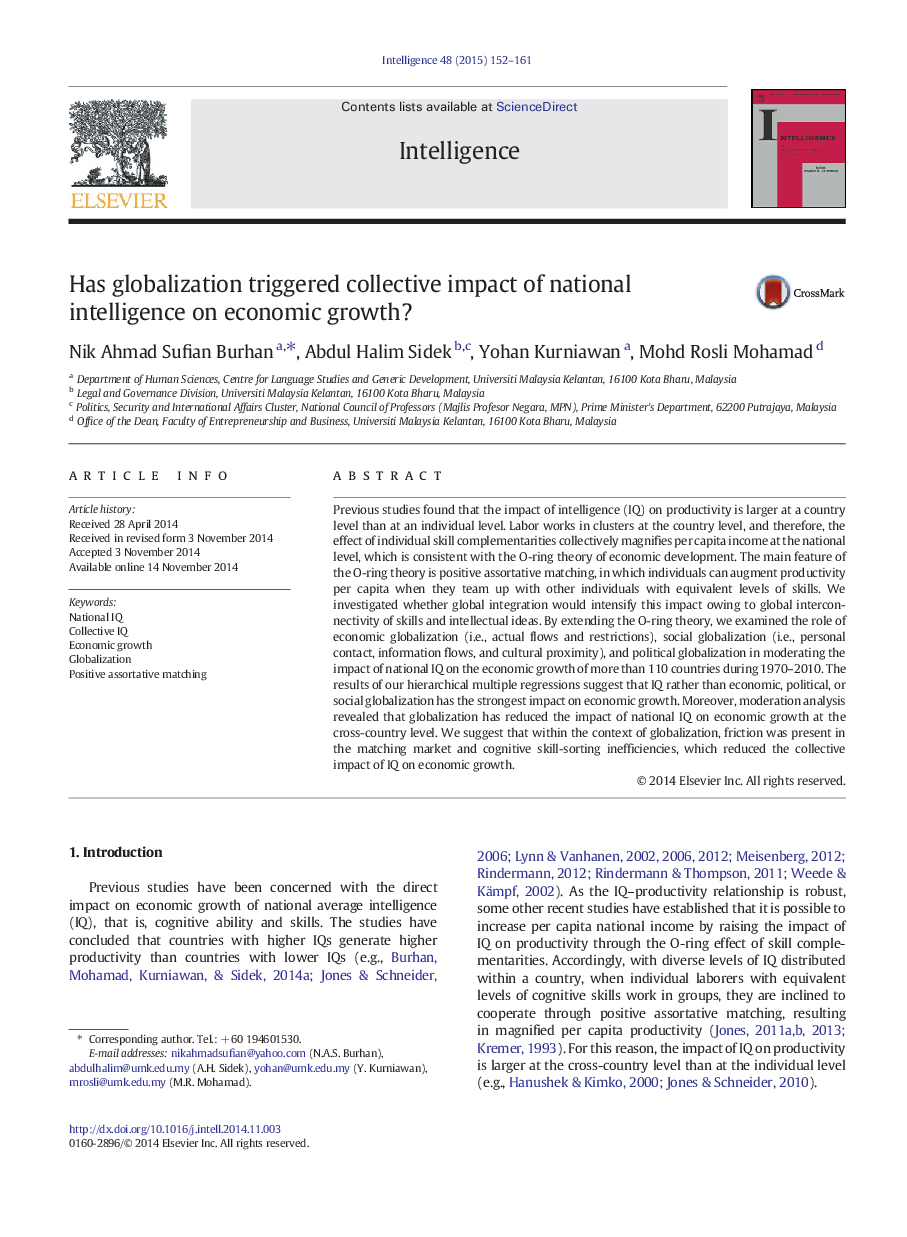ترجمه فارسی عنوان مقاله
آیا جهانی شدن باعث تاثیر جمعی اطلاعات ملی بر رشد اقتصادی می شود؟
عنوان انگلیسی
Has globalization triggered collective impact of national intelligence on economic growth?
| کد مقاله | سال انتشار | تعداد صفحات مقاله انگلیسی |
|---|---|---|
| 40454 | 2015 | 10 صفحه PDF |
منبع

Publisher : Elsevier - Science Direct (الزویر - ساینس دایرکت)
Journal : Intelligence, Volume 48, January–February 2015, Pages 152–161
ترجمه کلمات کلیدی
IQ ملی - IQ جمعی - رشد اقتصادی - جهانی شدن - تطبیق جویی هماهنگ مثبت
کلمات کلیدی انگلیسی
National IQ; Collective IQ; Economic growth; Globalization; Positive assortative matching

